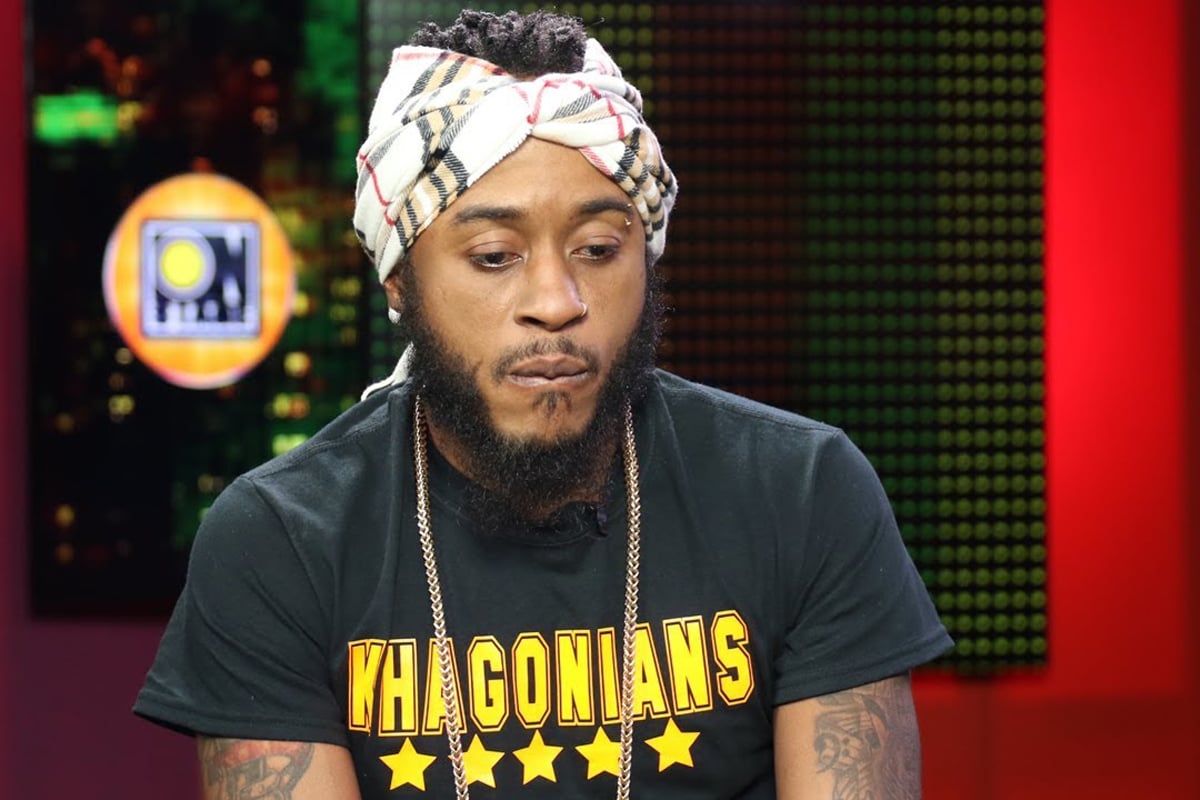Khago Says Radio, Television Are Not Pushing “Good Music”

Nah Sell Out artist Khago contends that the local radio and television stations are not pushing “good music.”
According to the Manchester native, the artists, like himself who are vocally sound and promulgate wholesome content appear, to have been shunned for that which is considered bellicose.
“If dem lock out all the good artist and a push obeah and scammers and killers there’s no space for me. Good music a play inna one space. Yuh want to know where? In the studio … lol… not radio nor TV, not even in the taxi. Good music don’t even make it to the shelf anymore… lol,” Khago had stated recently.
In April last year, after US band SOJA won the 2022 Best Reggae Album Grammy, Khago had said that Jamaican artists had circumvented Reggae and had ditched the genre for “chap” music. He had also argued that whatever was being passed off as Reggae had been watered down, resulting in SOJA winning the coveted prize, even though they were weak vocally.
“Mi listen all Soja song which part win all Grammy my Lord. Yuh can teck up any handcart man; yuh can teck off any gyal or anybaddy offa di street corner a Jamaica, an dem can sing betta dan dem deh white bwoy. But don’t blame dem. Jamaicans naw sing Reggae music anymore. Wi naw sing paa Reggae beat. Wi a sing Chap! Wi chappin, an swaggin! Eeh?” Khago had said in a video which he shared on Instagram.
“Suh, if no Reggae music not comin out – even if di Reggae music a come out, it caan skank. It hip. Di Reggae music nave no vibes. It naa no waistline; it nuh ha no waistline or no bassline. Suh at di end a di day, don’t blame dem,” the Manchester native had said.
In March last year, Veteran Dancehall hitmaker Admiral Bailey, like Khago, had expressed concern about the quality of the songs being played on national airwaves. At the time, the Big Belly Man singer had fingered payola by unscrupulous radio disc jockeys as one of the key elements which has, over the years, forced Dancehall music on a downward spiral, and held it down for almost two decades.
According to Bailey, before that relatively new phenomenon, which was done with impunity by disc jockeys and greedy sound system selectors, music was played on merit, and substandard music was not given precedence.
Payola is the soliciting or accepting of cash from artists and their proxies, in exchange for airplay, and according to the Old Time Something deejay, it was unheard of in his heydays.
“I remember in those days a numba one song was a numba one song. You didn’t have to pinch the radio man and you didn’t have to pinch the selector,” Admiral had said.
“I don’t think is talent of such that change di music. Di music was forced to change because a greed. If a selector a radio disc jock, want to buss particular song, all when it nuh good, him a guh buss it enuh,” he explained.
In pointing out that payola had affected him negatively, Admiral had also pointed out that disc jockeys would have artistes as their feeding trees.
“Of course, caw mi naw pay. And mi nuh have dah money deh fi pay eeda. Becaw some a di ridiculous money dem weh yuh hear yuh haffi gi a disc jock, and by two-weeks time, him stop play it, an yuh haffi re-funds him up again. Yuh caan sustain dat,” he said.
The issue of payola was the bane of Jamaica’s broadcast industry for many years and grew to such a scale and scope in the late 2000s, that the Broadcasting Commission (BCJ) was compelled to launch an anti-payola campaign which included Dancehall artiste, Spice as one of the spokespersons.
In February 2013, Executive Director of the BCJ Cordell Green had declared that it would be made mandatory for “all content for broadcast” to be “received, evaluated and approved through a library”.
“We are intent on cutting out the one-man show, where people who produce music get airplay based on who they know or can pay. The library is to be a central operational feature of broadcasting again,” Green had said at the time.

